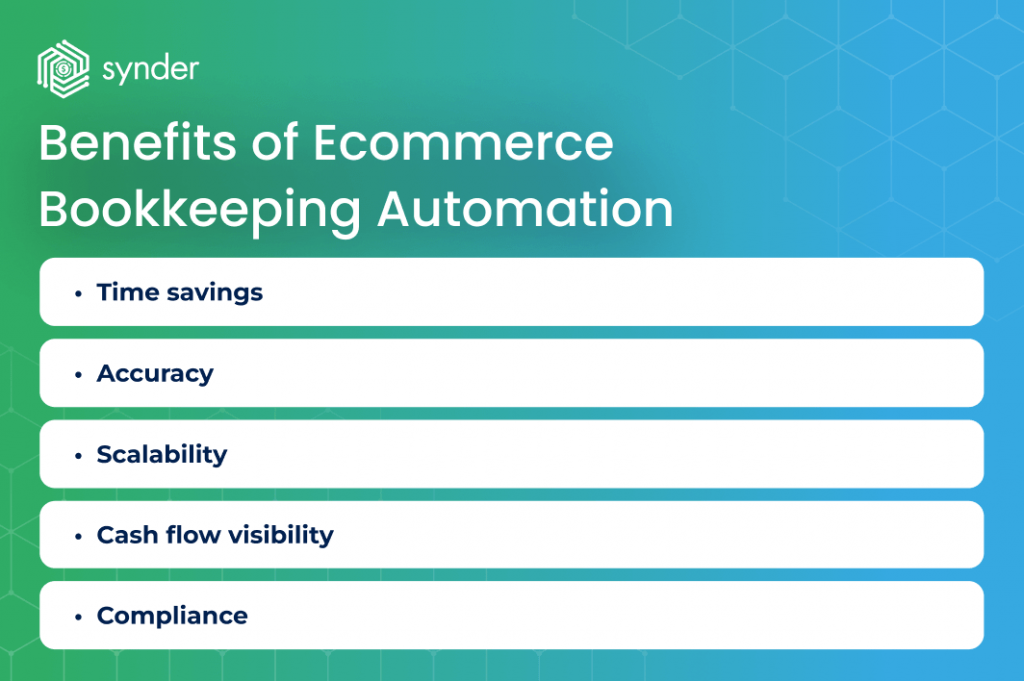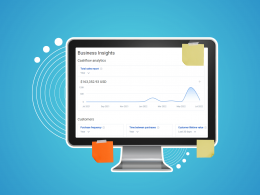Managing your ecommerce business across Amazon, Etsy, and Shopify shouldn’t mean dealing with spreadsheets or manually entering sales into your accounting system. Fortunately, modern accounting software solutions offer fully automated multi-channel integrations, syncing your sales data across platforms without the risk of human error.
So, what’s the best accounting software for Amazon, Etsy, and Shopify integration?
Synder stands out as one of the most robust and user-friendly options. It supports automated synchronization with all three platforms simultaneously, eliminating the need for manual data entry and enabling accurate, real-time financial reporting.
How Synder works: Syncing Amazon, Etsy, and Shopify
Let’s say you’re an online seller with three active storefronts: Amazon for your high-volume product listings, Etsy for your handmade goods, and Shopify for your branded DTC site. You want all your sales, refunds, fees, and taxes from these platforms to flow seamlessly into your accounting software, whether that’s QuickBooks, Xero, Sage Intacct, or NetSuite.
Here’s how Synder automates this entire process, step by step:
- Start by creating a Synder account
After signing up for a 15-day free trial, you select your accounting system. Whether you’re using QuickBooks or Xero, Synder has native integrations that require no extra connectors, ensuring all future data flows directly into the correct accounts. - Integrate your sales channels
Next, you connect Amazon, Etsy, and Shopify. Now Synder will seamlessly bridge them with your accounting software:
Unlike other tools that limit you to one store per integration, Synder supports multiple stores per platform under a single account.
- Choose your sync mode
If you prefer a high-level daily-batch overview, you go with the Summary Sync. If you need product-level detail, you select Per Transaction Sync. Both options ensure your data is clean, categorized, and audit-ready.
- Set up Smart Rules for accurate categorization
Want all Shopify shipping fees to go to a specific account? Or Amazon refunds automatically logged as negative income? Synder’s Smart Rules help you customize how each transaction is handled in your books.
This example mirrors the typical setup process for thousands of ecommerce sellers already using Synder.
The result? Seamless multi-channel sales data synchronization across Amazon, Etsy, and Shopify, automatically categorized, synced to your accounting software, and matched with payouts. It eliminates manual work, reduces errors, fosters a smooth month-end close, and gives you more time to focus on growth.
Join our 1-1 demo to learn more about how Synder streamlines ecommerce accounting.
Why automated ecommerce bookkeeping matters
Using automated ecommerce bookkeeping solutions like Synder provides several key benefits:

- Time savings: Eliminate up to 70 hours per month of manual work.
- Accuracy: Reduce human error and improve reporting reliability.
- Scalability: Easily add new sales channels as your business grows.
- Cash flow visibility: Reconcile faster and gain real-time insight into your business finances.
- Compliance: Keep your records tax-ready and audit-friendly at all times.
FAQ
Can these software solutions handle multicurrency transactions?
Yes, Synder supports multicurrency sales and can convert foreign currencies to your home currency using the correct exchange rates for accurate reporting.
Do these integrations support historical data import?
Absolutely. With Syndder, you can backdate syncs and import sales data from past months, or years for a fee—as far back as your connected platforms allow—to fill gaps in your accounting records.
Can I connect more than one store per platform?
Yes. Synder allows users to link Amazon, Etsy, Shopify, and other storefronts under one account and sync them all to the same accounting system. The software supports integration with over 30 sales and payment platforms.
Does Synder work with QuickBooks Desktop?
Yes, Synder supports QuickBooks Desktop integrations alongside QuickBooks Online, Xero, Sage Intacct, and NetSuite.






